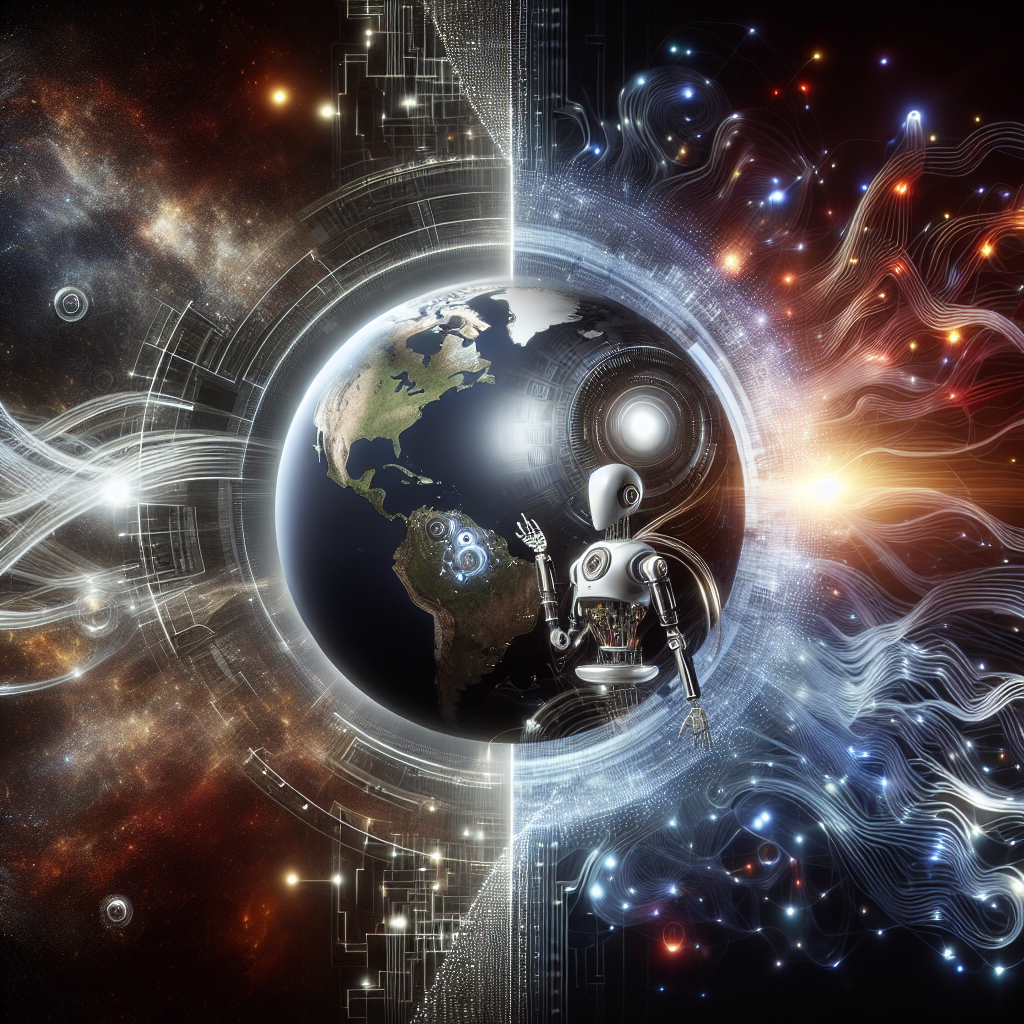Artificial Intelligence (AI) is rapidly advancing and reshaping the world as we know it. From self-driving cars to virtual assistants, AI technologies are becoming more integrated into our daily lives. While AI offers a plethora of opportunities for improving efficiency, productivity, and quality of life, it also poses risks that need to be carefully considered. In this article, we will discuss the potential risks and opportunities of AI and its impact on the future of humanity.
Risks of AI:
1. Job Displacement: One of the most significant concerns regarding AI is the potential for job displacement. As AI technology becomes more advanced, it has the potential to automate various tasks currently performed by humans. This could lead to widespread unemployment and economic disruption, particularly for low-skilled workers.
2. Bias and Discrimination: AI systems are only as good as the data they are trained on. If the data used to train AI systems is biased, it can lead to discriminatory outcomes. For example, AI algorithms used in hiring processes may inadvertently perpetuate gender or racial biases present in the training data, leading to unfair hiring practices.
3. Privacy and Security Concerns: AI technologies often rely on vast amounts of data to function effectively. This raises concerns about privacy and security, as personal data can be misused or compromised. For example, AI-powered surveillance systems could infringe on individuals’ privacy rights if not properly regulated.
4. Lack of Transparency: AI systems can be complex and opaque, making it difficult to understand how they arrive at their decisions. This lack of transparency can raise concerns about accountability and trust in AI technologies, particularly in critical applications such as healthcare or criminal justice.
5. Existential Risks: Some experts warn of the potential existential risks posed by advanced AI systems. For example, if AI systems were to surpass human intelligence and autonomy, they could pose a threat to the survival of humanity. This scenario, often referred to as the “AI alignment problem,” is a topic of ongoing debate in the AI research community.
Opportunities of AI:
1. Improved Efficiency and Productivity: AI technologies have the potential to revolutionize industries by automating repetitive tasks, optimizing processes, and increasing overall efficiency. For example, AI-powered algorithms can help businesses make better decisions, improve customer service, and streamline operations.
2. Healthcare Advancements: AI has the potential to transform healthcare by enabling more accurate diagnoses, personalized treatments, and predictive analytics. AI-powered medical imaging systems, for example, can help doctors detect diseases earlier and more accurately than ever before.
3. Environmental Sustainability: AI technologies can play a key role in addressing environmental challenges such as climate change and resource depletion. For example, AI-powered systems can optimize energy consumption, improve waste management, and enable more sustainable agricultural practices.
4. Enhanced Creativity and Innovation: AI systems can augment human creativity by assisting in tasks such as design, music composition, and storytelling. By leveraging AI tools, artists, writers, and creators can explore new possibilities and push the boundaries of their craft.
5. Social Impact: AI technologies can be harnessed for social good, such as improving access to education, healthcare, and economic opportunities. For example, AI-powered chatbots can provide mental health support to individuals in remote areas, or AI algorithms can help identify patterns of human trafficking for law enforcement agencies.
FAQs:
1. What is Artificial Intelligence (AI)?
Artificial Intelligence (AI) refers to the development of computer systems that can perform tasks that typically require human intelligence, such as speech recognition, decision-making, and problem-solving. AI technologies encompass a wide range of techniques, including machine learning, natural language processing, and robotics.
2. How is AI being used today?
AI technologies are being used in a variety of industries and applications, including healthcare, finance, transportation, and entertainment. Examples of AI applications include virtual assistants like Siri and Alexa, self-driving cars, predictive analytics in marketing, and fraud detection in banking.
3. What are the ethical considerations of AI?
Ethical considerations of AI include issues related to bias and discrimination, privacy and security, transparency and accountability, and the potential for existential risks. It is important for developers, policymakers, and society as a whole to address these ethical concerns and ensure that AI technologies are used responsibly and ethically.
4. How can we mitigate the risks of AI?
To mitigate the risks of AI, it is important to implement robust regulations and guidelines for the development and deployment of AI technologies. This includes ensuring transparency and accountability in AI systems, addressing bias and discrimination in training data, and promoting ethical standards in AI research and development.
5. What is the future of AI and humanity?
The future of AI and humanity is uncertain, but it is clear that AI technologies will continue to play an increasingly important role in shaping our society. It is essential for us to carefully consider the risks and opportunities of AI and work towards a future where AI technologies benefit all members of society while upholding ethical standards and values.

